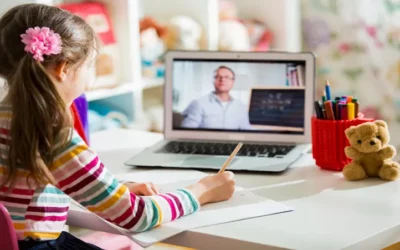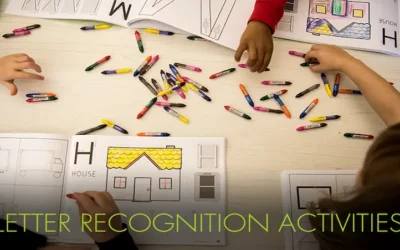Are you looking for fun and effective ways to enhance your child’s learning abilities? Imagine if you could unlock the full potential of their memory while they have a blast playing games. Well, look no further!
Introducing engaging memory games – the secret weapon to boost your child’s cognitive skills. These games not only entertain but also sharpen their memory, concentration, and problem-solving abilities. So, why wait? Dive into the world of memory games and witness your child’s learning abilities soar to new heights!
Table of contents
- The Importance of Memory Games for Children’s Learning
- Choosing the Right Memory Games for Your Child
- Benefits of Engaging Memory Games
- Strategies to Enhance Learning Abilities Through Memory Games
- Incorporating Memory Games into Daily Routines
- Tips for Creating a Stimulating Learning Environment
- Monitoring Your Child’s Progress and Adapting Games Accordingly
- Conclusion
- Frequently Asked Questions
The Importance of Memory Games for Children’s Learning
Memory games play a crucial role in enhancing children’s learning abilities. These games help develop and strengthen their memory, concentration, and cognitive development in children in a fun and engaging way. By actively engaging in memory exercises, children train their brains to retain and recall information more effectively.
Incorporating engaging memory games into your child’s routine is a piece of valuable parenting advice that can significantly boost their learning abilities.
One key benefit of memory games is the improvement in working memory. This type of memory is essential for tasks like following instructions, problem-solving, and organizing thoughts. By regularly practicing memory games, children learn to process information efficiently and retain it for longer periods.
Furthermore, Engaging memory games are excellent activities for kids to not only have fun but also boost their cognitive abilities and enhance their learning potential.
Incorporating memory games into your child’s routine can foster good habits for kids, promoting cognitive growth and enhancing their learning abilities.
In summary, memory games offer a holistic approach to improving children’s learning abilities. They foster memory retention, enhance concentration, and promote cognitive development. By incorporating these engaging games into their routine, parents can provide a solid foundation for their children’s academic success.
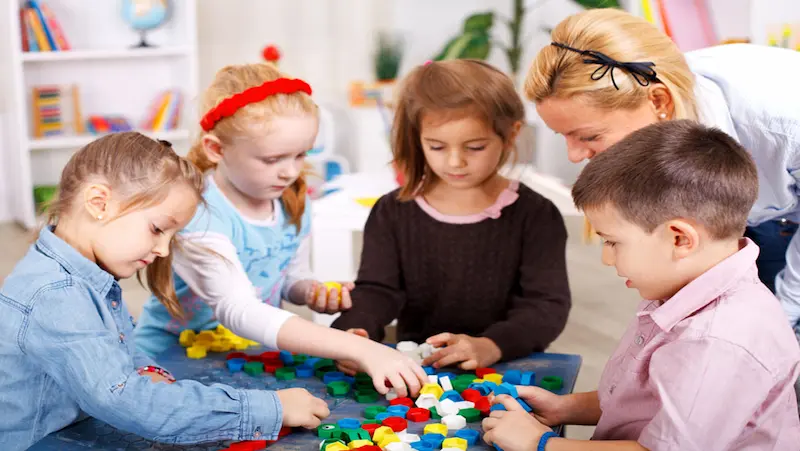
Choosing the Right Memory Games for Your Child
Engaging memory games play a crucial role in effective parenting by nurturing and enhancing a child’s learning abilities in a fun and interactive manner.
Choosing the right memory games for kids is essential to ensure maximum engagement and learning. Here are some key factors to consider:
1. Age-appropriate: Select memory games that are suitable for your child’s age and developmental stage. Games with age recommendations help to ensure the right level of complexity and challenge.
2. Theme or interest: Look for memory games that align with your child’s interests or hobbies. Whether they love animals, superheroes, or numbers, finding games that incorporate their passions will enhance their motivation and enjoyment.
3. Variety of formats: Explore different formats of memory games, such as card matching, puzzles, or digital applications. Providing a variety of experiences keeps your child engaged and prevents boredom.
4. Difficulty levels: Consider games that offer adjustable difficulty levels. Starting with easier levels and gradually progressing to more challenging ones allows your child to build their memory skills incrementally.
5. Interactive and engaging: Look for memory games that offer interactivity, colorful visuals, and appealing designs. Games with sound effects or timers can add an element of excitement and keep your child invested in the activity.
6. Multiplayer options: Opt for memory games that allow multiple players. Playing with friends or family members promotes social interaction and can make the experience more enjoyable for your child.
7. Educational value: While memory games are inherently educational, some games also focus on specific learning objectives, such as language development, math skills, or problem-solving. Consider games that align with your child’s learning needs and goals.
By considering these factors, you can select memory games that are not only entertaining but also cater to your child’s developmental needs, ensuring a rewarding and beneficial learning experience.

Benefits of Engaging Memory Games
Engaging memory games offer a multitude of benefits for kids. Here are some key advantages:
1. Memory enhancement: Memory games actively exercise the brain, improving a child’s memory retention and recall abilities. Regular practice with memory games helps strengthen their cognitive processes, allowing them to remember and retrieve information more effectively.
2. Concentration and focus: Memory games require concentration and focused attention. By engaging in these games, children learn to block out distractions and sharpen their ability to concentrate for extended periods. This skill is transferable to other areas of learning and can improve academic performance.
3. Cognitive skills development: Memory games promote cognitive development by stimulating critical thinking, problem-solving, and pattern recognition. Children learn to identify relationships, make connections, and develop logical reasoning skills through gameplay.
4. Visual and spatial awareness: Many memory games rely on visual and spatial memory, as children need to remember the position and details of objects or symbols. By practicing these games, kids enhance their visual and spatial awareness, which can be beneficial in subjects like mathematics and geometry.
5. Social interaction: Memory games often involve multiplayer options, encouraging social interaction and cooperative play. Playing memory games with peers or family members enhances communication skills, turn-taking, and teamwork.
6. Fun and motivation: Engaging memory games are enjoyable for children, making the learning process more exciting and motivating. When kids have fun while learning, they are more likely to be actively engaged and develop a positive attitude toward learning in general.
7. Transferable skills: The skills acquired through memory games, such as memory retention, concentration, problem-solving, and critical thinking, can be transferred to other areas of academics and daily life. These skills contribute to overall academic success and lifelong learning.
By incorporating engaging memory games into a child’s routine, parents and educators can tap into these numerous benefits, fostering cognitive development, improving academic performance, and creating a positive learning experience.
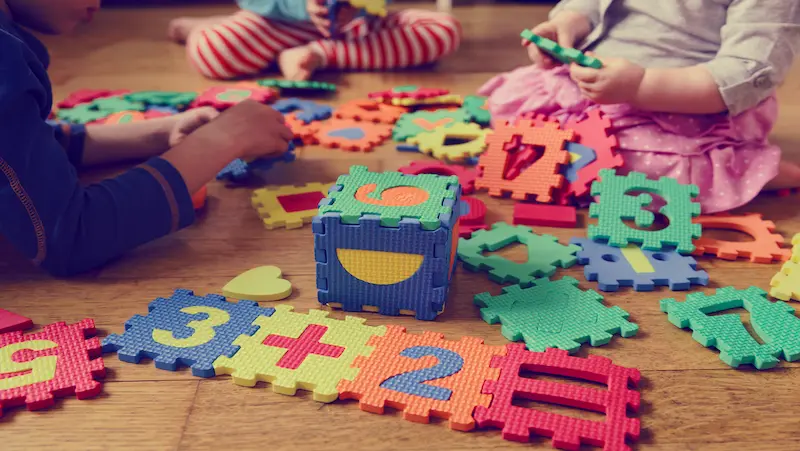
Strategies to Enhance Learning Abilities Through Memory Games
To enhance learning abilities through memory games, here are some effective strategies for kids:
1. Start with the basics: Begin with simple memory games that have fewer cards or easier challenges. This allows children to grasp the concept and build confidence before progressing to more complex games.
2. Practice regularly: Consistent practice is key to improving memory skills. Set aside dedicated time for memory game sessions, incorporating them into a daily or weekly routine. Regular practice helps reinforce memory retention and strengthens cognitive abilities.
3. Increase difficulty gradually: As children become more proficient, gradually increase the difficulty level of memory games. Introduce more cards, add time limits, or incorporate additional challenging elements. This gradual progression keeps children engaged and provides a sense of achievement as they tackle harder tasks.
4. Use mnemonic techniques: Teach children mnemonic strategies to aid memory. For example, associating information with vivid mental images or creating rhymes or acronyms to remember sequences. These techniques can enhance memory encoding and retrieval.
5. Create variations: Introduce variations to memory games to keep them fresh and engaging. For example, try different themes, modify the rules, or introduce new elements like timed challenges or bonus rounds. This variety adds excitement and prevents monotony.
6. Encourage reflection and review: After playing memory games, encourage children to reflect on their performance. Discuss strategies they used, areas of improvement, and any patterns or connections they noticed. The regular review helps reinforce learning and promotes metacognitive skills.
7. Incorporate real-life applications: Relate the memory games to real-life situations. For example, ask children to remember a series of shopping items or recall a sequence of events from a recent outing. This bridges the gap between game-based learning and practical application, enhancing memory transferability.
8. Provide positive reinforcement: Celebrate achievements and offer praise when children demonstrate progress or succeed in memory games. Positive reinforcement boosts their motivation and fosters a positive attitude toward learning.
By implementing these strategies, parents and educators can maximize the learning potential of memory games, improving children’s memory skills, concentration, and cognitive abilities in an enjoyable and effective way.
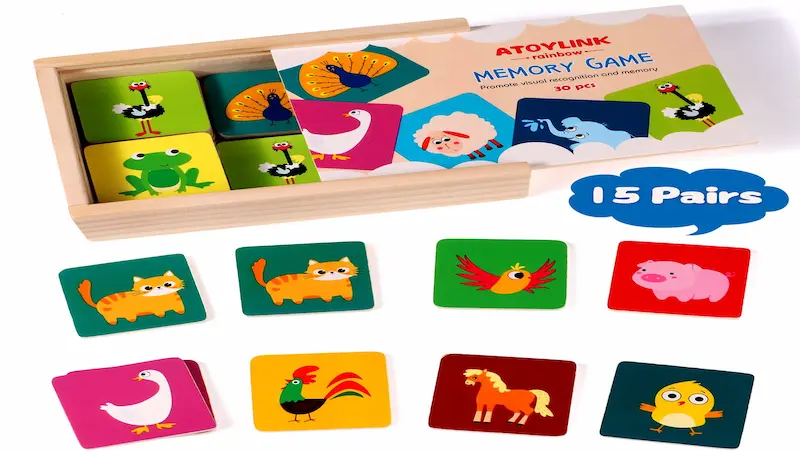
Incorporating Memory Games into Daily Routines
Incorporating memory games into daily routines for kids is a fantastic way to make learning fun and engaging. By integrating these games seamlessly into their day-to-day activities, children can enhance their memory skills while having a great time. Here’s why it’s beneficial and some practical tips for implementation:
Firstly, daily memory games promote consistent practice, which is key to improving memory retention and recall abilities. By making it a part of their routine, children develop a regular habit of exercising their brains and strengthening their cognitive abilities.
Secondly, incorporating memory games into daily activities provides a natural and effortless learning experience. It eliminates the notion of learning as a separate, mundane task and instead integrates it seamlessly into the child’s life. This approach fosters a positive attitude towards learning and encourages lifelong learning habits.
To incorporate memory games into daily routines, parents can start by allocating specific time slots for game sessions. It can be after dinner, during car rides, or before bedtime. By consistently dedicating time to memory games, children understand the importance of regular practice and look forward to these engaging sessions.
Additionally, parents can integrate memory games into everyday tasks. For example, while grocery shopping, ask the child to remember and recall a list of items. During family outings, play a memory game by taking turns describing and remembering details about the places visited. These real-life applications of memory games make learning practical and relatable.
Digital resources, such as memory game apps or online platforms, can also be utilized. Parents can incorporate screen time limits and offer a selection of educational memory games to play. This ensures a balance between technology and traditional gameplay while still providing an engaging and interactive learning experience.
In all, incorporating memory games into daily routines for kids offers numerous benefits. It fosters regular practice, creates a positive learning environment, and seamlessly integrates learning into everyday life. By making memory games a part of their routine, parents can empower their children to develop and strengthen their memory skills while enjoying the process.
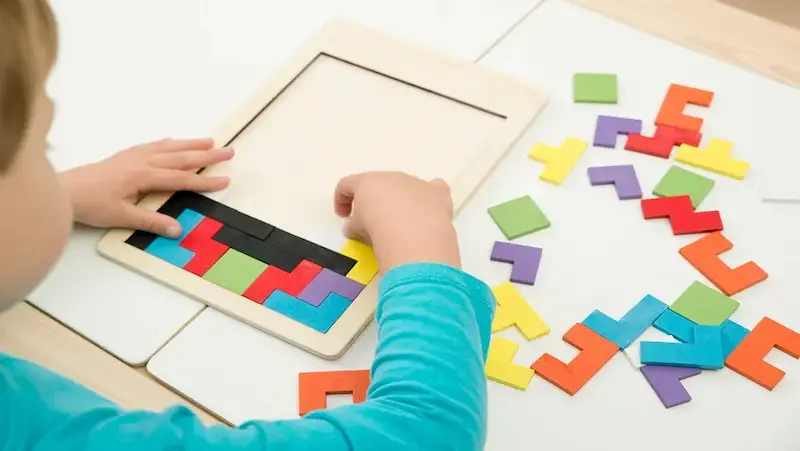
Tips for Creating a Stimulating Learning Environment
Creating a stimulating learning environment for kids is essential to foster their curiosity, engagement, and overall development. Here are some tips to achieve this:
1. Provide a dedicated space: Designate a specific area in your home for learning activities. This could be a study corner, a desk, or a playroom with educational resources. Having a dedicated space signal to children that learning is a priority and helps establish a focused mindset.
2. Organize learning materials: Keep learning materials, such as books, puzzles, and educational games, easily accessible and well-organized. This encourages independent exploration and allows children to select resources based on their interests and developmental needs.
3. Incorporate visuals: Utilize visual aids, posters, charts, and colorful displays to create an immersive and visually stimulating environment. Visual cues enhance learning, and memory retention, and help children make connections between concepts.
4. Encourage hands-on experiences: Provide opportunities for hands-on learning through experiments, art projects, and sensory activities. This allows children to actively engage with the learning material, fostering creativity, problem-solving skills, and a deeper understanding of concepts.
5. Foster a love for reading: Create a cozy reading nook with a variety of age-appropriate books. Encourage regular reading habits and make it a shared experience by reading together or discussing favorite books. Surrounding children with books cultivates a love for reading and language development.
6. Promote curiosity and exploration: Encourage children to ask questions, explore their surroundings, and pursue their interests. Provide opportunities for discovery through nature walks, science experiments, or visits to museums. Supporting their curiosity nurtures a lifelong love for learning.
7. Incorporate technology wisely: Integrate educational technology, such as educational apps or interactive learning platforms, into the learning environment. Choose age-appropriate and high-quality digital resources that supplement learning goals and provide interactive experiences.
8. Personalize learning experiences: Tailor learning activities to your child’s interests, strengths, and learning style. Recognize their individuality and provide opportunities for self-directed learning, creativity, and problem-solving. This personalized approach enhances engagement and motivation.

9. Encourage collaboration and social interaction: Foster an environment that promotes collaboration and social interaction. Encourage group activities, discussions, and cooperative learning experiences. This helps develop communication skills, teamwork, and empathy.
10. Celebrate achievements: Recognize and celebrate your child’s accomplishments and efforts. Display their artwork or academic achievements in a prominent place. Positive reinforcement encourages a growth mindset and motivates children to continue learning.
By implementing these tips, parents can create a stimulating learning environment that nurtures their child’s natural curiosity, encourages exploration, and fosters a lifelong love for learning.
Monitoring Your Child’s Progress and Adapting Games Accordingly
Monitoring your child’s progress and adapting games accordingly is vital for their optimal learning experience. By keeping a close eye on their development, you can tailor memory games to suit their needs and challenge them appropriately.
Regularly assess your child’s performance and observe any areas where they may be struggling or excelling. Are they improving their memory retention? Are they finding certain game aspects too easy or too difficult? This feedback will guide you in selecting appropriate memory games that align with your current skill level.
Adapting games can involve adjusting the difficulty level, introducing new challenges, or incorporating additional elements to enhance their cognitive abilities. If a game is too easy, you can increase the complexity by adding more cards or introducing time limits. Conversely, if a game is too challenging, you can start with simpler versions and gradually progress.
Keep an open line of communication with your child, asking for their input and preferences. This collaborative approach ensures their engagement and enjoyment while fostering a sense of ownership over their learning journey.
By monitoring progress and adapting games accordingly, you create an optimal learning environment that supports your child’s growth, challenges their abilities, and fosters continuous improvement.

Encouraging Peer Interaction and Cooperative Learning
Encouraging peer interaction and cooperative learning for kids offers numerous benefits, including social development, teamwork skills, and enhanced learning outcomes. Here are some key points to consider:
1. Group activities: Organize group activities that promote interaction among peers. This can include group projects, team challenges, or collaborative problem-solving tasks. Group activities encourage children to communicate, share ideas, and work together towards a common goal.
2. Peer tutoring: Encourage older or more skilled children to mentor and support their peers. Peer tutoring not only reinforces the tutor’s knowledge but also helps the learner grasp concepts more effectively. It fosters a sense of responsibility and promotes mutual respect and support among children.
3. Cooperative games: Introduce cooperative games where children must work together to achieve a shared objective. These games require collaboration, communication, and cooperation, helping children develop teamwork skills and learn the value of collective effort.
4. Pair and small-group work: Structure learning activities that involve pairs or small groups of children. This allows them to interact closely, discuss ideas, and learn from one another. Pair and small-group work encourages active engagement, problem-solving, and the exchange of diverse perspectives.
5. Discussions and debates: Encourage children to engage in discussions and debates on various topics. This promotes critical thinking, communication skills, and respectful dialogue. Children learn to express their opinions, listen to others, and consider different viewpoints.
6. Shared learning experiences: Organize field trips, visits to museums, or educational outings where children can learn together and engage in shared experiences. These activities provide opportunities for peer interaction, collaborative learning, and the exploration of new concepts in a social context.
7. Establish a positive learning environment: Foster a supportive and inclusive learning environment where children feel comfortable interacting with their peers. Emphasize the value of teamwork, respect, and active participation. Create opportunities for children to build relationships, develop empathy, and appreciate the strengths of others.
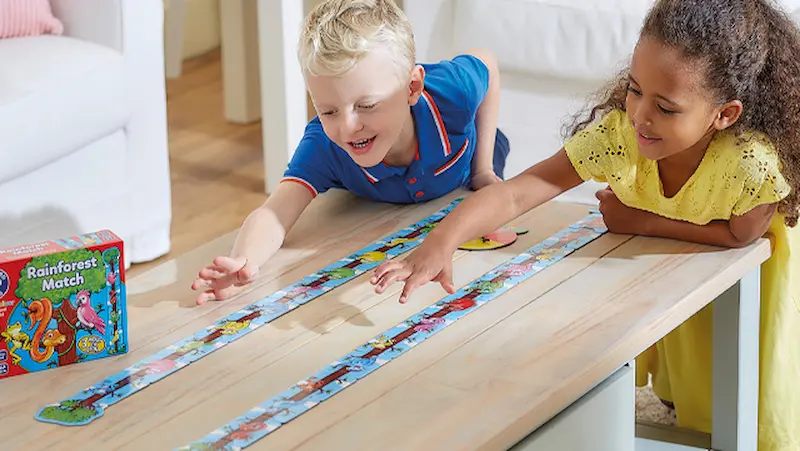
By encouraging peer interaction and cooperative learning, children not only develop valuable social skills but also enhance their learning outcomes. Incorporating an effective sleep training method can significantly contribute to enhancing your child’s learning abilities through engaging memory games.
They learn to collaborate, communicate effectively, and appreciate different perspectives. Peer interaction fosters a positive learning environment that promotes engagement, motivation, and overall academic and social growth.
Conclusion
In conclusion, memory games have the power to empower your child’s learning journey in numerous ways. By incorporating these engaging activities into their daily routines, you provide an opportunity for them to enhance their memory skills, concentration, and cognitive abilities while having fun.
Engaging memory games can play a pivotal role in encouraging good behavior by stimulating cognitive functions and promoting focus, patience, and strategic thinking in children.
Moreover, memory games can be tailored to your child’s interests, age, and learning needs, making the experience personalized and motivating. By actively participating in your child’s learning journey, monitoring their progress, and adapting games accordingly, you create an environment that encourages growth, curiosity, and a love for learning.
Embrace the power of memory games and watch your child flourish as they unlock their full potential.
Ready to ignite your child’s potential? Explore the exciting world of robotics, financial education, and coding courses for kids with Brightchamps – where learning meets innovation!
Frequently Asked Questions
Memory games can be introduced to children as early as 2-3 years old, starting with simple matching games and gradually progressing to more complex challenges as they grow.
Memory games can help improve your child’s academic performance by enhancing their memory retention, concentration, critical thinking, and problem-solving skills, which are all essential for academic success.
Some popular memory games for children include “Memory,” “Simon Says,” “Concentration,” and “Matching Pairs.” Choose games based on your child’s age, interests, and developmental needs.
Memory games are activities that require players to remember and recall information, such as matching pairs or sequences. They benefit children by improving memory, concentration, cognitive skills, and overall learning abilities.
Yes, memory games can be incorporated into everyday activities. For example, remembering a shopping list, recalling events of the day, or playing memory games during car rides or mealtime.
To reap the benefits, it’s recommended that children engage in memory games regularly. Incorporating them into their routine a few times per week can help reinforce memory skills and cognitive development.
Yes, memory games can help improve concentration and focus in children. The gameplay requires attention and sustained focus, which can enhance their ability to concentrate on various tasks and activities.

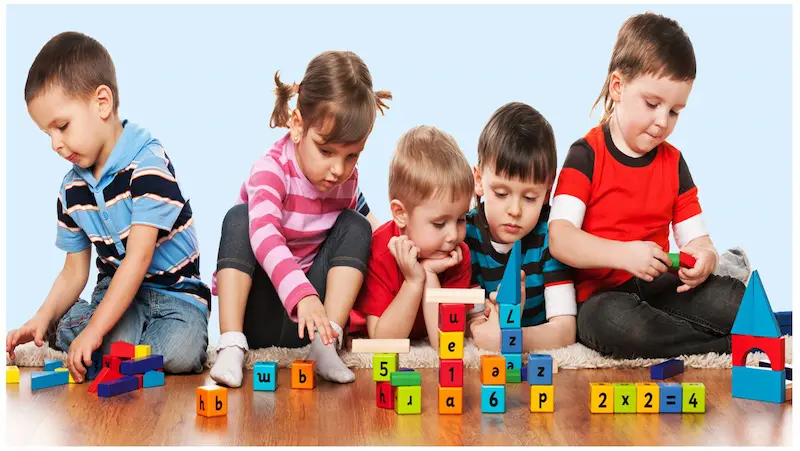
 We are an army of educators and passionate learners from BrightChamps family, committed to providing free learning resources to kids, parents & students.
We are an army of educators and passionate learners from BrightChamps family, committed to providing free learning resources to kids, parents & students.













